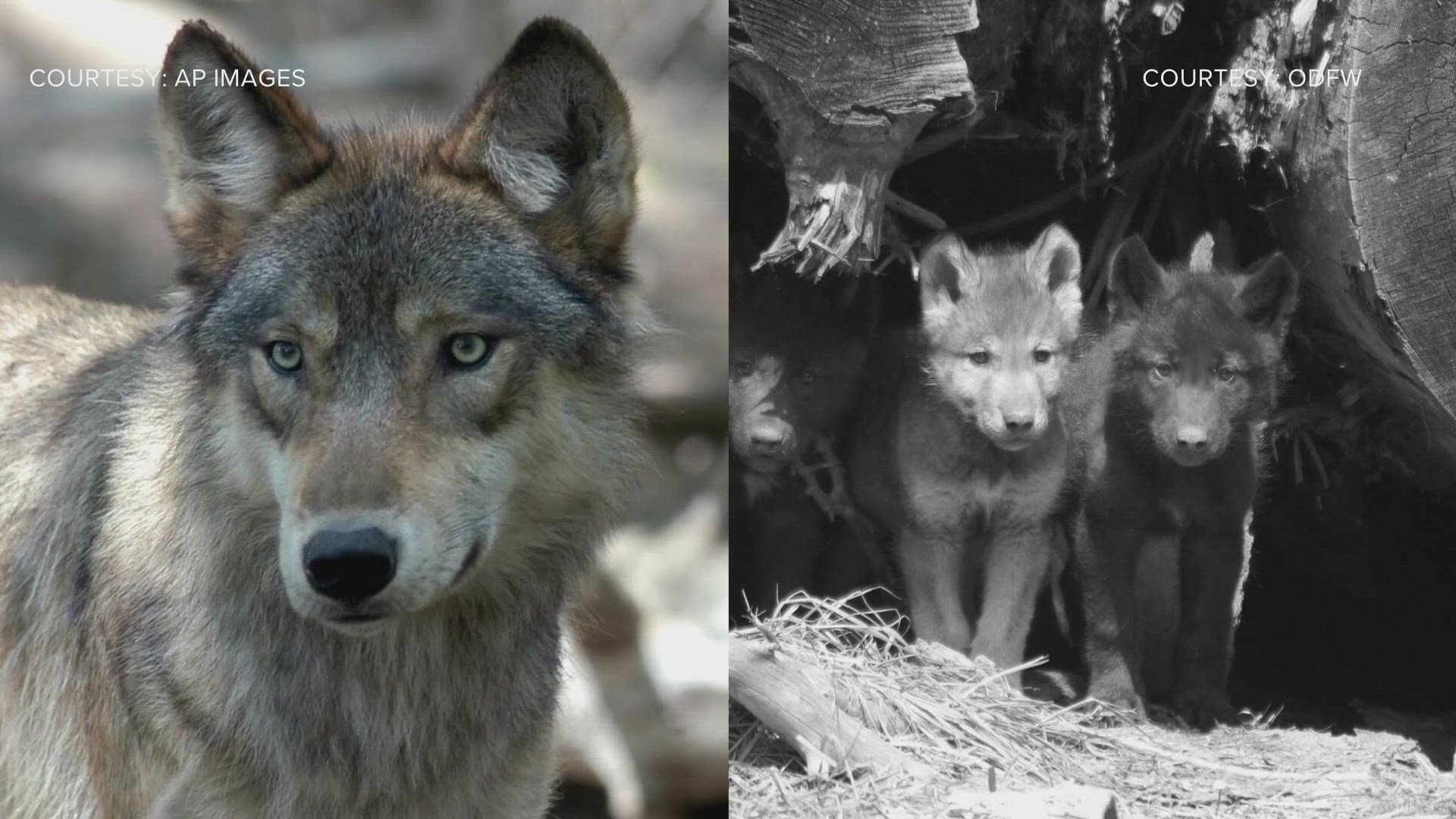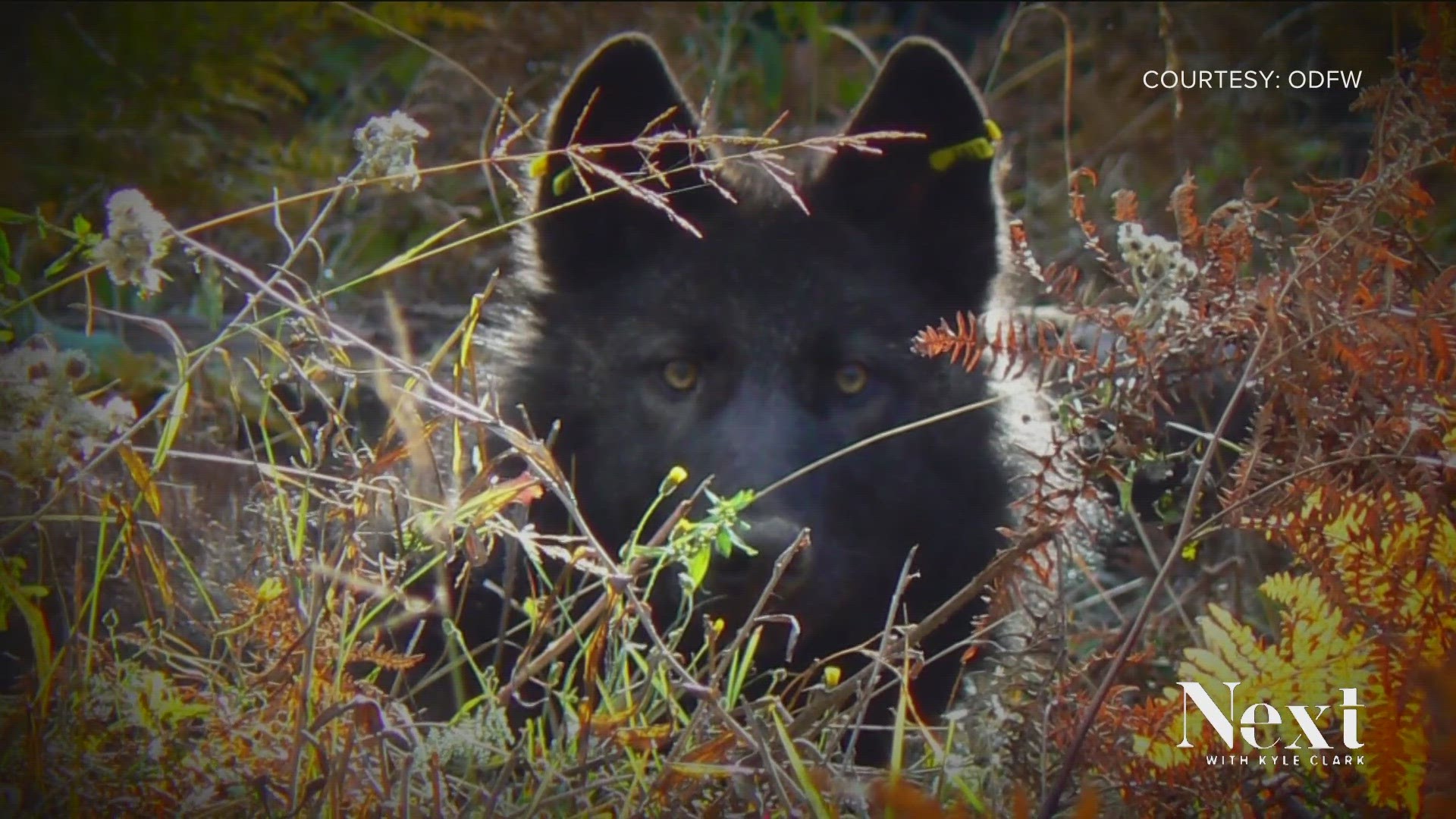DENVER — Colorado Parks and Wildlife officials believe they need to reintroduce wolves before the end of this year, because of a 2020 ballot measure. After several rejections, CPW continues to search for wolves.
"We're hopeful and expecting to meet the deadline and get things done," Reid DeWalt, assistant director for Aquatic, Terrestrial and Natural Resources, told the Colorado Parks and Wildlife Commission on Aug. 25.
CPW continues to plan to meet the deadline. The state recently spent $32,166.82 on 15 GPS-enabled wolf collars, according to records obtained by 9NEWS.


The state also hired a wolf monitoring and data coordinator. The new employee starts Oct. 9 and will earn a salary of about $80,000 per year, according to records obtained by 9NEWS.


Meanwhile, the state continues to look for a source for wolves. Colorado has asked Wyoming, Idaho, Montana, Washington, Oregon and the Nez Perce tribe.
Nez Perce
CPW officials asked the Nez Perce tribe, in Idaho, about its interest in providing wolves. This happened over Zoom on July 15, according to CPW's public records manager. The tribe was not mentioned as a source in the state's wolf management plan.
The tribe has not yet responded to questions from 9NEWS. A spokesperson for the Colorado governor's office said the outreach to the tribe was not just to meet the deadline this year, but also for future wolf releases. A spokesperson for Idaho's Fish and Game Department said state officials were not part of the conversation with Nez Perce.
Washington
"We remain receptive to the idea," a spokesperson for Washington Gov. Jay Inslee told 9NEWS.
Washington officials are considering Colorado's request, but even if they said yes today, the state's Wolf Policy Lead said Colorado would not get wolves this year.
"I understand Colorado has a deadline, but from our perspective that’s just an arbitrary deadline and what we care most about is the welfare of the wolves and the safety of our staff and the efficiency of our operations," said Julia Smith, Washington's Wolf Policy Lead.
She said they will not catch wolves before January, or February, when there is more snow.
"Wolves are really difficult to capture using any method, and so we need to do it when the conditions are most amenable to catching them," Smith said.
A state wildlife committee discussed Colorado's request on June 22.
“I don’t think we’re going to be causing Colorado any real heartburn if we say the time is not right," a committee member said.
Eventually the committee decided the whole commission should discuss Colorado's request.
"What's the harm in opening discussions with Colorado?" a committee member asked.
The commission's discussion remains unscheduled.
What if Colorado fails to meet the wolf reintroduction deadline?
Oregon
An Oregon Department of Fish and Wildlife spokesperson said they continue to consider Colorado's request.
If Washington needed to wait for next year to catch wolves, because of snowpack, 9NEWS asked if the same was true for Oregon.
"Not going to speculate on what’s possible until we have a decision and agreement," an Oregon Department of Fish and Wildlife spokesperson said.
In August, CPW Assistant Director Reid DeWalt expressed confidence that an agreement would be reached with the Pacific Northwest states.
“It’s too early to say we have a formal agreement with any of those states, but we’re close,” he said.
Montana
"We've never really wavered in our lack of interest in providing wolves to Colorado," Montana Fish, Wildlife & Parks spokesperson Greg Lemon said.
Lemon said Montana's director formally told CPW Director Jeff Davis "no" in a phone call.
"Our focus on managing wolves in Montana is really focused on what's best for Montana, and they're a complicated and controversial issue up here, and so we'll keep our attention placed here," he said.
Montana, Wyoming, and Idaho were Colorado's first choices for wolves.
Idaho
Idaho rejected Colorado's request in a letter dated June 6 from Jim Fredericks, director of Idaho's Department of Fish and Game.
"Idaho has paid an enormous price to have wolves on the landscape," Fredericks wrote. "There are actual costs associated with monitoring, managing, and controlling wolves...Though these costs are significant, they are at least measurable. Less measurable are costs associated with unaccounted for livestock loss and increased productions costs, and loss to rural economies to due to decreased elk populations and hunting activity."
Wyoming
"Wyoming is opposed to sending wolves to Colorado," Wyoming Governor Mark Gordon told 9NEWS in May.
What if?
With Colorado's first three choices saying no, and one of two backups saying not this year, what if Colorado Parks and Wildlife fails to meet the Dec. 31 deadline?
We brought that hypothetical to Kevin Lynch, an environmental law expert and associate professor at the University of Denver.
First, he said no legal action can stop the reintroduction effort.
"I've tried to think, in advance of this, what the legal theory might be, and I've kind of struggled on that," he said.
He voted to reintroduce wolves and wants to see the state succeed.
"If they're not able to, it's hard to imagine what someone would do to challenge them. They're not going to be able to go back in time and reintroduce wolves that they don't have," he said.
DeWalt entertained the idea at the CPW Commission's August meeting.
“Some people feel like if we don’t that December deadline, which we will, that everything’s done. It’s not. We will probably actually release more wolves in the winter of January, February and March. So just keep that in mind," he said.
If Colorado doesn't reintroduce wolves before the end of the year, he said someone might still sue, but a judge can't conjure wolves.
"They will order them to do something that they clearly have the power to do, or the ability to do, but they're not going to ask them to do something unrealistic like that," Lynch said.
If the state misses the deadline, he said it might be a problem, but not a legal one.
"That would maybe be a political problem. I don't know. A court's not going to order the state to do something that they can't actually do," he said.
Colorado Parks and Wildlife director Jeff Davis turned down an interview request from 9NEWS.
"I could see the possibility of an interview later this year focused on a topic of our choosing," a CPW spokesperson emailed.


